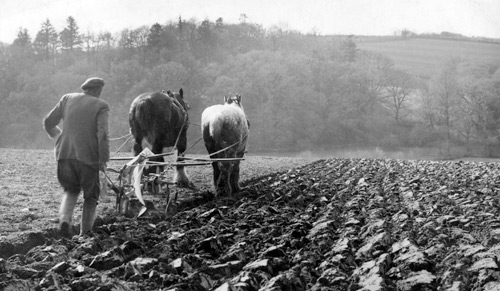|
|
- One in 20 private water supplies failed to meet the standard for E. coli, compared to 1 in 200 for public water supplies.
- Local authorities are not monitoring over a quarter of small private supplies for E. coli .
- More than 60% of government funding available to deal with water quality failures went unused by suppliers.
The EPA yesterday released the Drinking Water Quality in Private Group Schemes and Small Private Supplies 2021.
Drinking water is provided by over 380 group water schemes to approximately 200,000 people across rural communities in Ireland.
Additionally, over 1,700 small private supplies (premises like hotels, pubs and restaurants, crèches, nursing homes and national schools) provide water to approximately 60,000 staff, customers and service users on a daily basis.
Meeting E.coli standards is a basic requirement in the provision of safe drinking water. In 2021, one in twenty private supplies were found to have E. coli contamination, indicating that the water supply has not been properly disinfected.
The failure of these disinfection systems put the health of approximately 6,000 people, that use these drinking water supplies throughout the country, at risk.
In addition, twenty-one private group schemes (7%) failed to meet the standard for THMs, including five schemes that the European Commission has identified as being of particular concern.
Trihalomethanes (THM) are a by-product of the treatment process and are formed where there is an excess of organic matter in the water source.
Commenting on the findings of the report, Dr Tom Ryan, Director of the EPA’s Office of Environmental Enforcement said: “Compliance with drinking water standards in private supplies for E.coli and THMs hasn’t improved in recent years. It is essential that works to improve water quality are carried out as soon as possible to eliminate serious risks to people’s health. Private water suppliers are obliged to make sure their drinking water is clean and wholesome for consumers. Local authorities must investigate supplies that fail to meet drinking water quality standards and, where necessary, follow up with enforcement action to protect public health.”
Funding is available to group water schemes and household well owners for improvements to their supplies through the Multi-Annual Rural Water Programme (MARWP).
During the 2019-2021 MARWP funding cycle over 60% (€36 million) of funding available for infrastructural improvements went unused by water suppliers.
Mr Noel Byrne, Programme Manager of the EPA’s Office of Environmental Enforcement said: “Water quality in private supplies consistently lags behind public water quality. It is disappointing to see that €36million of funding was not used by suppliers to address infrastructural needs at problematic private supplies. The Department of Housing, Local Government and Heritage needs to complete its review of rural drinking water services, with the purpose of providing direction and support to water suppliers and to eliminate public health risks.”
During 2021, over a quarter of small private supplies, serving food businesses, nursing homes, crèches and B&Bs were not monitored. In addition, although there are 1,700 small private supplies registered with local authorities there may be many more that are unregistered. If a supply isn’t registered and hasn’t been monitored, there is no information on the quality of the drinking water provided to consumers.
Water suppliers in conjunction with local authorities must ensure that private supplies are registered, and that monitoring is undertaken in line with the Regulations.
This report outlines the actions that need to be taken to address the issues highlighted.
The full EPA report is available HERE.
  
For the first time ever, Ireland has crowned two world ploughing champions at this year’s world ploughing championships held in Ratheniska, Co. Laois.
The winners were announced, following a Gala Banquet, bringing the event to a close.
Mr Eamonn Tracey a resident of Co. Carlow won the Supreme World Conventional Ploughing Championship, while Wexford man, Mr John Whelan, won the Reversible Ploughing competition.
Both men are expected to represent Ireland at the World Ploughing contest next year, in 2023.
Amongst the various winners, North Tipperary was well represented with the 3 furrow conventional plough class – Junior, going to Mr Ciaran Milne, with 138 points.
In the U28 conventional junior plough class, Mr Ethan Harding, Tipperary North, took third place, with 93 points.
The event which returned for the first time in three years, following the Covid-19 epidemic; saw attendance figure for the 91st, 2022, National Ploughing Championships, reaching 277,000, over the three day period, with exhibitors and visitors alike totally declaring the event an outstanding success.
  
Justice sector representatives on hand to discuss victims’ rights at Department’s stand #328, Row 20 ‘Supporting Victims of Crime’.
Over the course of three days at the Ploughing Championships starting from tomorrow, September 20th , 2022, representatives from the Department of Justice, the Irish Prison Service, the Courts Service, the Legal Aid Board and the Victims of Crime Helpline, will be working together to support victims of crime.
Staff from across the Justice Sector will be on hand at Stand #328, Row 20 under the headline ‘Supporting Victims of Crime’ to speak to members of the public about their rights and supports available, as set out in the Victims Charter, if they become or have been victims of crime.
Members of An Garda Síochána will also be there to discuss how An Garda Síochána supports and helps victims throughout the reporting and investigation process, with a view to emphasising that nobody should feel afraid to report a crime.
Representatives from the Courts Service will focus on the technological facilities in place that make the courts process easier for victims, for example the use of video-link and screens in trials. They will also be able to explain the work of court accompaniments organisations funded by the Department of Justice, such as Victims Support at Court (VSaC).
The Irish Prison Service will be highlighting the Victims Liaison Office of the Prison Service, which can liaise with victims on relevant developments in the sentence management of a prisoner, for example temporary release, which a victim may wish to be aware of.
The Legal Aid Board will be available to speak to visitors to the stand about legal aid services for victims of crime.
The Crime Victims Helpline will also be present to highlight their national support service, whether by freephone, text or by email.
Speaking ahead of the event, Minister for Justice Mrs Helen McEntee said: “The National Ploughing Championship is an important event in the calendar each year for agricultural and rural communities in Ireland. While it is a fun and educational event that celebrates farming, rural life, music and entertainment, given the massive and diverse attendance, it is also a really positive opportunity to reach into communities.
That is why I am delighted to be able to attend and share our important message around the supports available to victims of crime. Being a victim of crime can happen to anyone, and if it does, it can be traumatic. If you do become a victim of crime, it is important to know that you are not alone – you are entitled to help and support from a range of agencies across the justice sector.
Colleagues from across the sector are available at the Department of Justice’s tent to engage with anybody interested or affected and I would encourage everyone to drop in to say hello.”
  
It has been reported that, last week, two men were airlifted to Cork University Hospital following a farm accident in Co. Tipperary.
The accident is understood to have occurred in the Cappawhite area of Co Tipperary and both men are understood to have suffered a fall, while carrying out work.
Gardaí have confirmed that officers attended a workplace accident on Thursday afternoon last, September 15th, at approximately 1.30pm.
The two injured men, are understood to be aged in their 40s, however the extent of their injuries has not been disclosed.
Emergency services were called to the scene and an air ambulance was called to bring both men to hospital.
The Health Safety Authority were notified regarding the incident.
  
In Northern Ireland, poultry farmers are accused of having allegedly used falsified official documents; same needed to obtain necessary planning permission, in order to provide evidence that they can safely dispose of or store manure, produced by their expanding farms.
Teagasc, the Irish Republic’s agri-food agency, had launched an internal investigation into the planning applications of dozens of northern poultry farmers beginning in 2021 and to-date, investigations are understood to have identified over 20 cases of falsification or the amending of applied applications, with farmers names used without permission or consent regarding chicken litter contracts.
Teagasc claim that it found that most of these applications used documentation purporting to be issued on their behalf, which were either completely falsified or certainly altered, and also without their knowledge or indeed consent.
These same planning applications relate to the export of chicken manure/litter, latter a rich fertiliser, produced by poultry farms. In order to obtain necessary planning permissions, applicants must provide continued evidence that they can safely dispose of, or store, manure produced by their farm units. However, most farms do not have the capacity to store the quantity of litter produced, as these farms continue to expand.
Historically, waste/manure/litter from poultry units in Northern Ireland would have been spread on local agricultural land or for use in the mushroom industry.
However, in more recent times the rapid growth in chicken farming has produced an unsustainable volume of poultry manure, both in Northern Ireland and indeed to a lesser extent here in the Republic of Ireland also. Some 65,000 tonnes of known chicken waste were imported into the Republic just last year. Since 2017, over 280,000 tonnes of poultry litter were imported into the Republic of Ireland.
This same poultry litter produces harmful emissions such as Ammonia, latter gas which is already at extremely high levels across the whole island of Eire. There also, is a further downside to the production of such quantities of poultry litter, with same known to cause environmental and human health risks, through water, air and soil pollution; with the spreading of antimicrobial residues, causing respiratory issues.
The Northern Ireland Department of Agriculture says it was contacted by Teagasc, latter here in Southern Ireland, following internal investigations by Teagasc last year.
In Ireland over 110 million birds are processed for meat and 900 million eggs are produced annually. There are estimated to be 24.5 million chickens being produced in Northern Ireland at any given time.
  
|
Support Us Help keep Thurles.info online by donating below. Thank you.
Total Donated 2024: €300.00
Thank You!
Daily Thurles Mass Livestream
|






Recent Comments